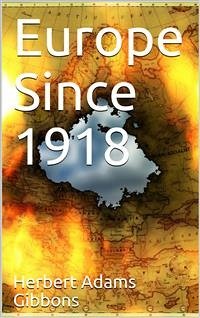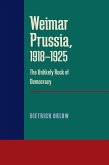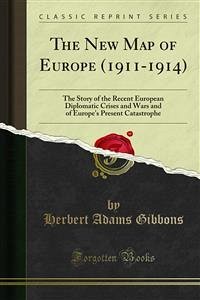These are the three reasons why Europe since 1918 has not found peace. The League of Nations is impotent, with or without the United States as a member, to restore Europe to peace until the three Furies—Vanity, Greed, and Revenge—cease raging.
After the World War the movement in the United States to induce the American people to underwrite the Paris peace settlement did not succeed. The overwhelming rejection of their panacea for the ills of the world did not discourage the supporters of the Versailles Covenant. After four years they are returning to the campaign for American participation in the Versailles League. Since they cannot disguise the seriousness of conditions in Europe as the fourth year of the functioning of the League of Nations draws to a close, the earnest League propagandists, to get away from the remorseless logic of “By their fruits ye shall know them,” now assert that Europe’s troubles are our fault. We refused to ratify the treaty and enter the League of Nations; ergo, all these things have happened.
The writer, an observer and student of European affairs for fifteen years, has never had an ax to grind or theories and national causes to advance and champion. In the Near East during the years leading up to the World War, in Paris during the World War and the Peace Conference, and following the aftermath of the war since the treaties were signed, his sole ambition has been to record what he has observed. He is not pro-anything. He feels, as he did when he wrote “The New Map of Europe” in 1914, “The New Map of Africa” in 1916, and “The New Map of Asia” in 1919, that a host of people are seeking an unbiased presentation of contemporary events, so that sentimentality will not obscure common sense in forming their opinion on the important problem of America’s place in the world and America’s duty toward the world. We must know how things actually are in order that we may help effectively to make them what they ought to be.
After the World War the movement in the United States to induce the American people to underwrite the Paris peace settlement did not succeed. The overwhelming rejection of their panacea for the ills of the world did not discourage the supporters of the Versailles Covenant. After four years they are returning to the campaign for American participation in the Versailles League. Since they cannot disguise the seriousness of conditions in Europe as the fourth year of the functioning of the League of Nations draws to a close, the earnest League propagandists, to get away from the remorseless logic of “By their fruits ye shall know them,” now assert that Europe’s troubles are our fault. We refused to ratify the treaty and enter the League of Nations; ergo, all these things have happened.
The writer, an observer and student of European affairs for fifteen years, has never had an ax to grind or theories and national causes to advance and champion. In the Near East during the years leading up to the World War, in Paris during the World War and the Peace Conference, and following the aftermath of the war since the treaties were signed, his sole ambition has been to record what he has observed. He is not pro-anything. He feels, as he did when he wrote “The New Map of Europe” in 1914, “The New Map of Africa” in 1916, and “The New Map of Asia” in 1919, that a host of people are seeking an unbiased presentation of contemporary events, so that sentimentality will not obscure common sense in forming their opinion on the important problem of America’s place in the world and America’s duty toward the world. We must know how things actually are in order that we may help effectively to make them what they ought to be.









